Mr. and Mrs. Smith (1941)
“If you had it all to do over again, would you still have married me?”
|
Synopsis: |
|
Genres, Themes, Actors, and Directors:
Review: Unfortunately, bland Gene Raymond is badly miscast as the pivotal third lead: While he’s supposed to be somewhat of a milquetoast (which, by the way, doesn’t jive with his aggressively sneaky initial play for Lombard), one can’t help wishing that Jack Carson — truly hilarious in a bit role as Montgomery’s well-meaning friend, who sets him up with a floozy — were playing this meatier role instead. Meanwhile, Hitchcock’s direction — in spite of his claim that he couldn’t relate to the characters in any way — is seamless if undistinguished; clearly, he was a man capable of carrying out any directorial duty placed before him. Redeeming Qualities and Moments: Must See? Links: |
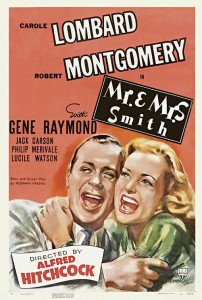
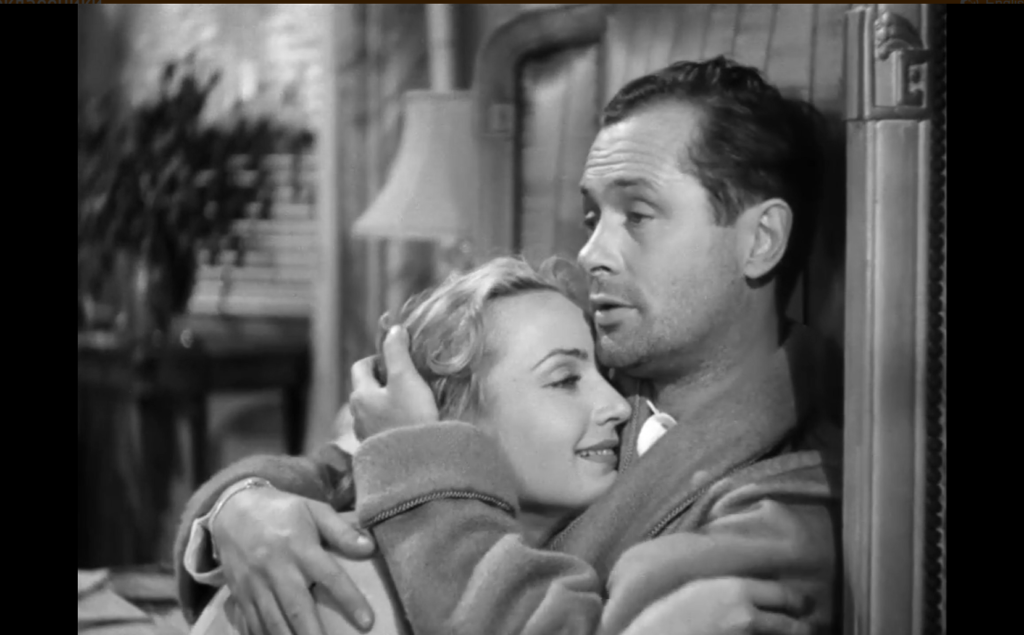
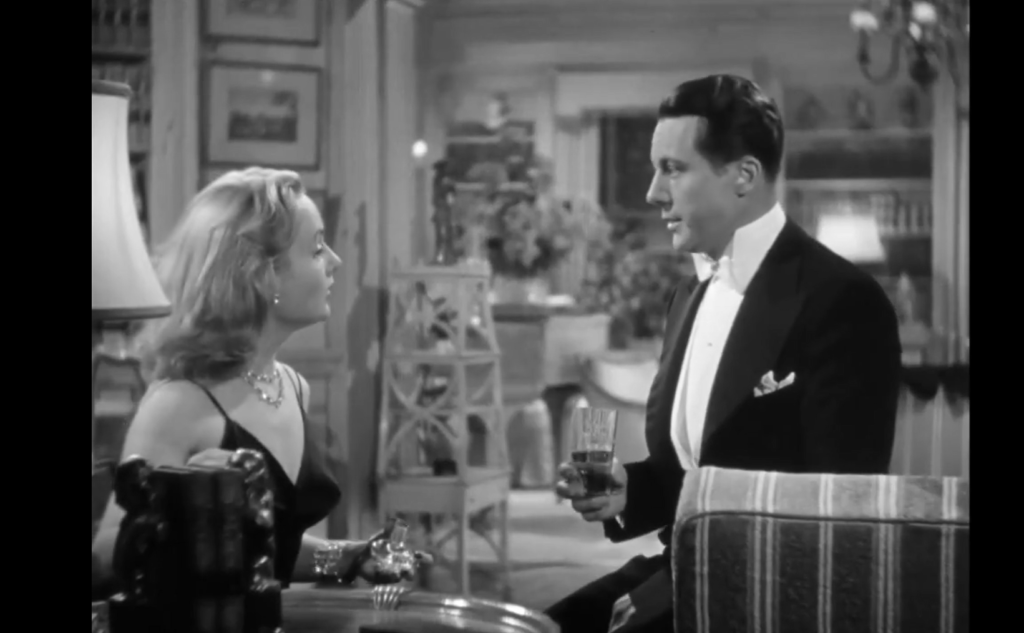
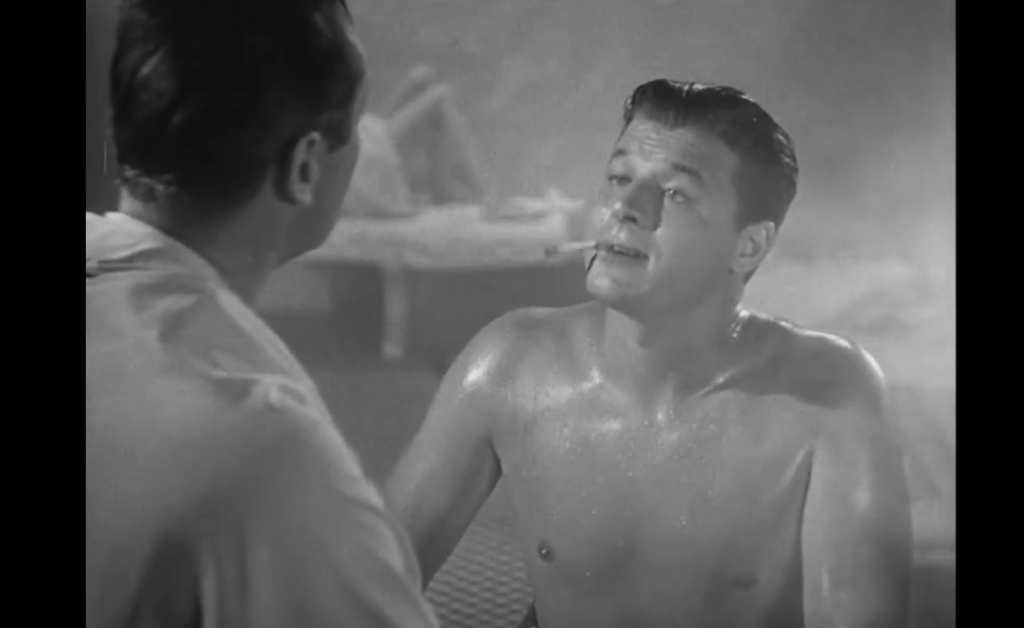
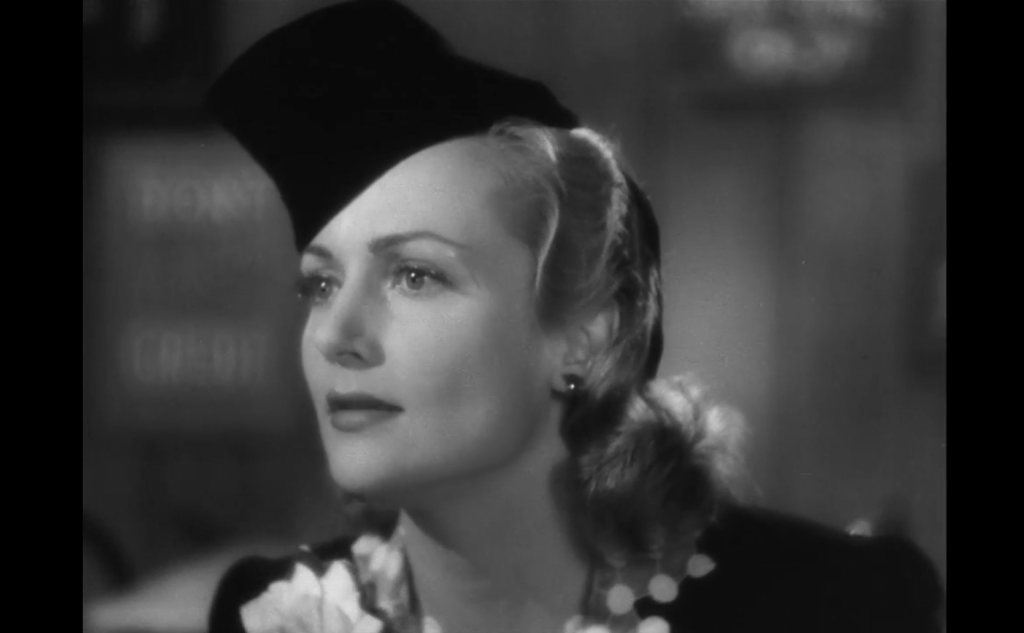
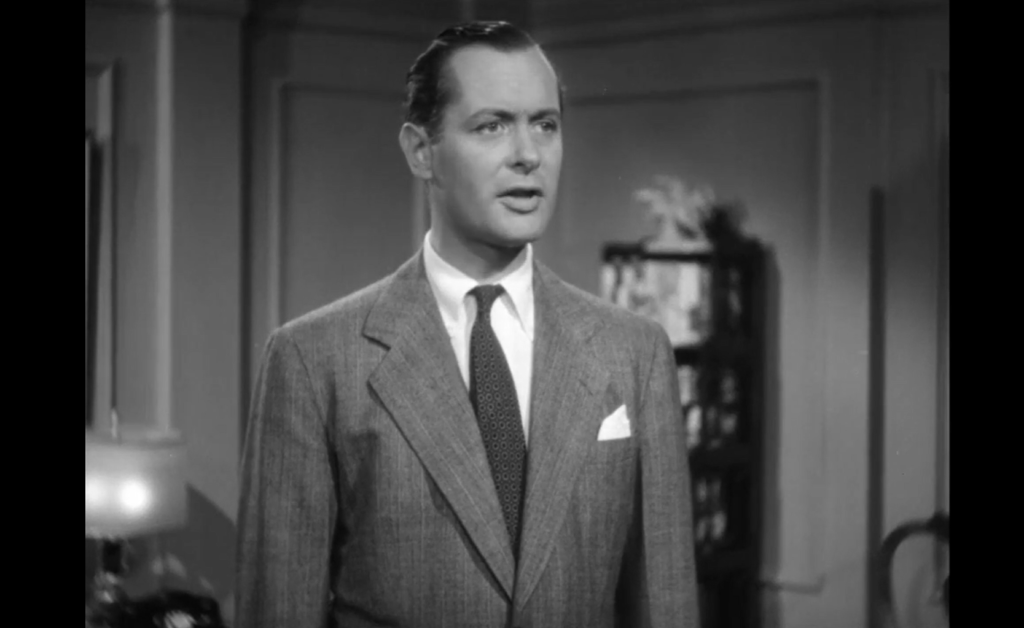
One thought on “Mr. and Mrs. Smith (1941)”
A once-must, for the three lead performances, and to see how Hitchcock successfully tries his hand outside his ‘comfort zone’ (as it were).
This, of course, is not the only time Hitch tried comedy, as there is humor in a number of his films (sometimes even pronounced, as with ‘The Trouble With Harry’). But obviously this is his only foray into comedy sans suspense. And he actually does a fine job. When he agreed to direct Lombard, he did not go in as director-for-hire; if you pay attention, you’ll see Hitch’s mark. Hitch may not have made straight comedy before or after, but he certainly understood how it was done; and the pacing appropriate for this type of film is clearly in evidence. ‘M&MS’ is a romp and it plays quickly and efficiently as one.
One main asset is that Hitch understands the importance of effect for a laugh-out-loud result. Note, for instance, the short scene at the amusement park. Lombard and Raymond get caught in mid-air on one of the rides. There is a quick cut to denote how long they’re trapped, and we then see them also caught in torrential rain. The discomfort is downplayed (esp. by Raymond) and it’s hilarious.
For me, the film has two particular highlights: first, the whole Florida Club sequence, in which Montgomery is on a double-date with Carson – mainly so that he can spy on Lombard and Raymond; the second comes after Lombard and Raymond return to his apartment after the amusement park. (Raymond is rather effective here. I don’t believe he’s meant to be “milquetoast” – that implies that he’s ineffectual. To the contrary, he simply has the manners of a Southern gentleman; he handles himself in a charmingly boyish way. In this latter scene, I esp. like the way he keeps saying “Thank you” in the exact same way, when suddenly drunk.)
When it comes to the characters of Lombard and Montgomery, one has to take their relationship for its surface value. In a way, their pairing – like the mind of God – passes all understanding: they are unmistakably drawn to each other yet they are self-involved, possessive and insecure. ~all of which works well for screwball comedy, but if one knew these characters in real life, one might tend to find them a bit annoying.
‘M&MS’ hinges on a ridiculous conceit that’s given full weight. Instead of the couple simply re-marrying, the fact that they aren’t married becomes an ‘issue’. Luckily, the conceit is given an added layer – since the leads are once again ‘single’, they’re each given the opportunity to step back for another look at who they really are. One might wonder why the view from that angle causes as much bickering as it does – but, as I said, their relationship does have that ‘je ne sais quoi’ to it, and whatever magnetism is between them is clearly (and not so clearly) between them.
At any rate, the result is intriguing and satisfying. And I love the final image: the dual implication being that Lombard and Montgomery may be at ‘cross purposes’ but they are nevertheless firmly entwined.
Note: screenwriter Norman Krasna gets a lot of credit here for his snappy script, dripping with comeback lines. My favorite Krasna script is probably 1963’s ‘Sunday in New York’ (based on his own play). Not included in Peary’s book – though it should be – ‘Sunday…’ is wonderfully sophisticated and extremely clever. Krasna clearly understood how to capitalize on comedy in the midst of conflict, often in a more organic way than someone as accomplished as Neil Simon.